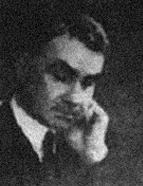

João Serras e Silva’s contribution to ENSUC stemmed both from his training and work as a doctor — he taught School Hygiene in the first year of the Teacher Training Course at the three levels of non-higher education — and from his commitment to debates on the evolution and social function of historiography. He considered it essential that, both in terms of the configuration of programme content and in terms of teaching methodologies (which should be active and empower students), the teaching of history should contribute to the education of adults who are aware and capable of acting more autonomously.
In his view, only a scientific history that was sociological, simultaneously materialistic and “spiritualistic”, corporatist and “lucidly nationalist” would guarantee young people and the country an “objective” understanding of their past, which was essential for building a future in which the positive aspects would be maintained and the negative characteristics abandoned (replaced by valid solutions already tested in other states). Using examples from the history of European colonial expansion, he sought to show how the ‘national crisis’ of the second half of the 16th century and the first half of the 17th century had resulted from Portugal’s continued status as a noble and warrior country, lacking a strong commercial and industrial elite; and from its inability to consolidate favourable relations with societies that had civilisational levels superior, similar or inferior to its own.
On historiography and the teaching of history, João Serras e Silva stated that in a “synthetic formula we could say: it was the cavalry that gave us India and it was the cavalry that made us lose it. We knew how to conquer, but we did not know how to retain and preserve. This is why India was lost. Once again, the facts show us that chivalry does not build anything solid and lasting; the patriarchal system of exploiting and dominating people, rather than things, is a system doomed to sterility. A history of the Discoveries that ignores this determinism, this chain of events, this predominance of social formations, may be an erudite history [...], but it is not a scientific history, capable of enlightening us about the mechanism of human evolution.” (SILVA, João Serras e, “O estudo da História” [The Study of History], Pedagogical Archive, no. 4, 1929, pp. 430/431.)
This work is financed by national funds through FCT - Foundation for Science and Technology, I.P, in the scope of the projects UIDB/04311/2020 and UIDP/04311/2020.
